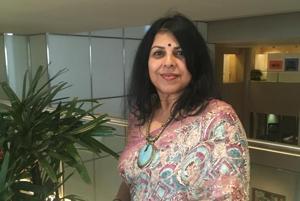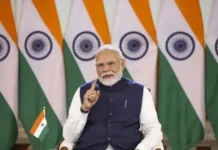 NEW DELHI: Indian-American author Chitra Banerjee Divakaruni, who had used Draupadi as the narrator for her novel based on the Mahabharata, is now writing a book which is a retelling of the Ramayana from Sita’s point of view.
NEW DELHI: Indian-American author Chitra Banerjee Divakaruni, who had used Draupadi as the narrator for her novel based on the Mahabharata, is now writing a book which is a retelling of the Ramayana from Sita’s point of view.
Writing about women has been very important for the McDavid professor of Creative Writing at the University of Houston and many of her books have women protagonists.
Her latest work “Before We Visit the Goddess”, published by Simon & Schuster, is about three generations of mothers and daughters who discover their greatest source of strength in one another.
“My next project will be a novel based on the Ramayana told from Sita’s point of view. Some years ago, I wrote a novel ‘The Palace of Illusions’, based on the Mahabharata. It was told from Draupadi’s point of view and ever since I have been thinking about a book based on the Ramayana,” she says.
“I have started writing that novel and hope to finish it by the end of this year,” Divakaruni told PTI.
“The Palace of Illusions” takes readers back to a time that is half-history, half-myth, and wholly magical; narrated by Panchaali, the wife of the five Pandava brothers. It is a woman’s take on the Mahabharata.
Tracing Panchaali’s life – from fiery birth and lonely childhood, where her beloved brother is her only true companion; through her complicated friendship with the enigmatic Krishna; to marriage, motherhood and Panchaali’s secret attraction to the mysterious man who is her husbands’ most dangerous enemy “The Palace of Illusions” is about a woman born into a man’s world – a world of warriors, gods and the ever manipulating hands of fate.
Divakaruni, who has penned 16 books, including “Oleander Girl”, “The Mistress of Spices”, “Sister of My Heart” and “One Amazing Thing”, is not interested in a non-fiction book right now.
“I really love the vehicle of fiction. I love it because it gives you so much freedom, it gives your imagination so much freedom. Once you are dealing with non-fiction, you really have to stick to what’s happening. But here, I can imagine what I want to happen. So I am going t stick to fiction.
“Also there is still so much to learn as a fiction writer. I feel I am always learning new things. I really want to get good at one thing,” she says.
Time management is a major issue for her.
“I love teaching and I give it a lot of time. I have a lot of students, many of my PhD students are writing their own books. So these need time. I also have to give time to my writings. So I have to be very careful in dividing time. So I divide up days. The days I go to campus I do all my teaching work. The days I don’t have to go, I try to focus as much as possible on my writings,” she says.
“I just prioritize things. I cut down on other things. Writing is important so I make sure I have time for it. It gives me a sense of fulfillment,” she adds.
Divakaruni loves writings of Indian authors like Amitav Ghosh, Kiran Desai and Jeet Thayil. “I also like multi-cultural writers like Margaret Atwood and Sandra Cisneros.” –PTI





